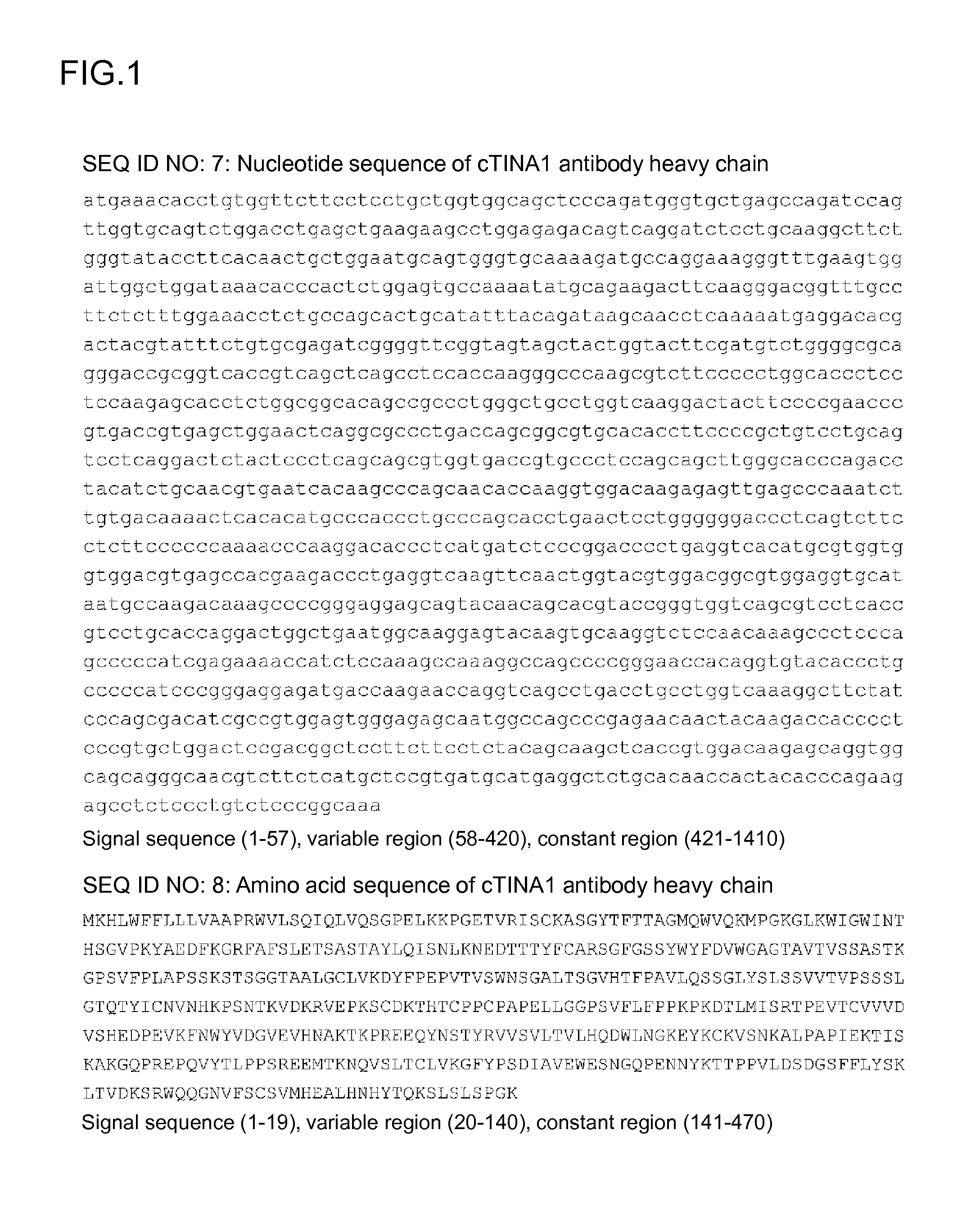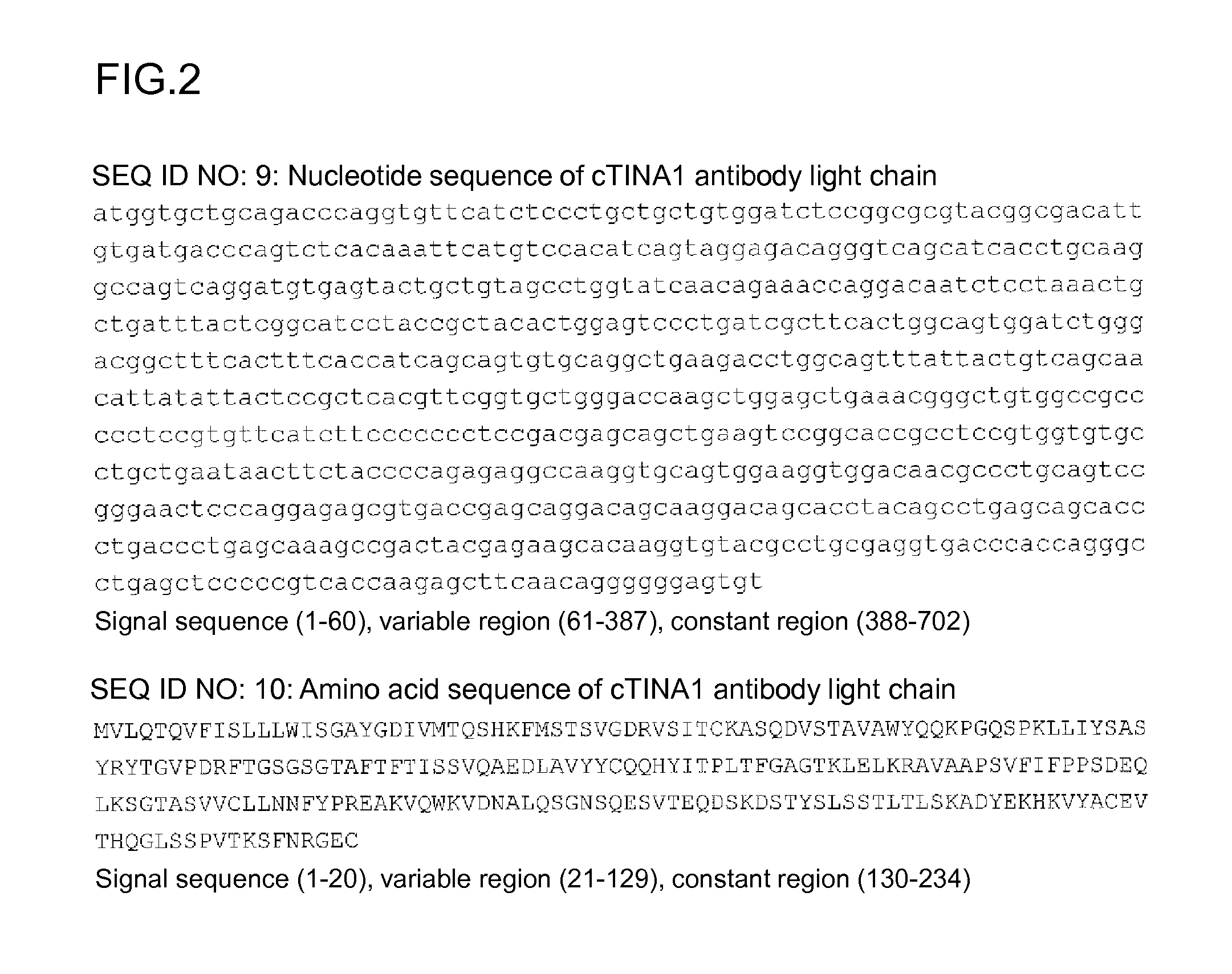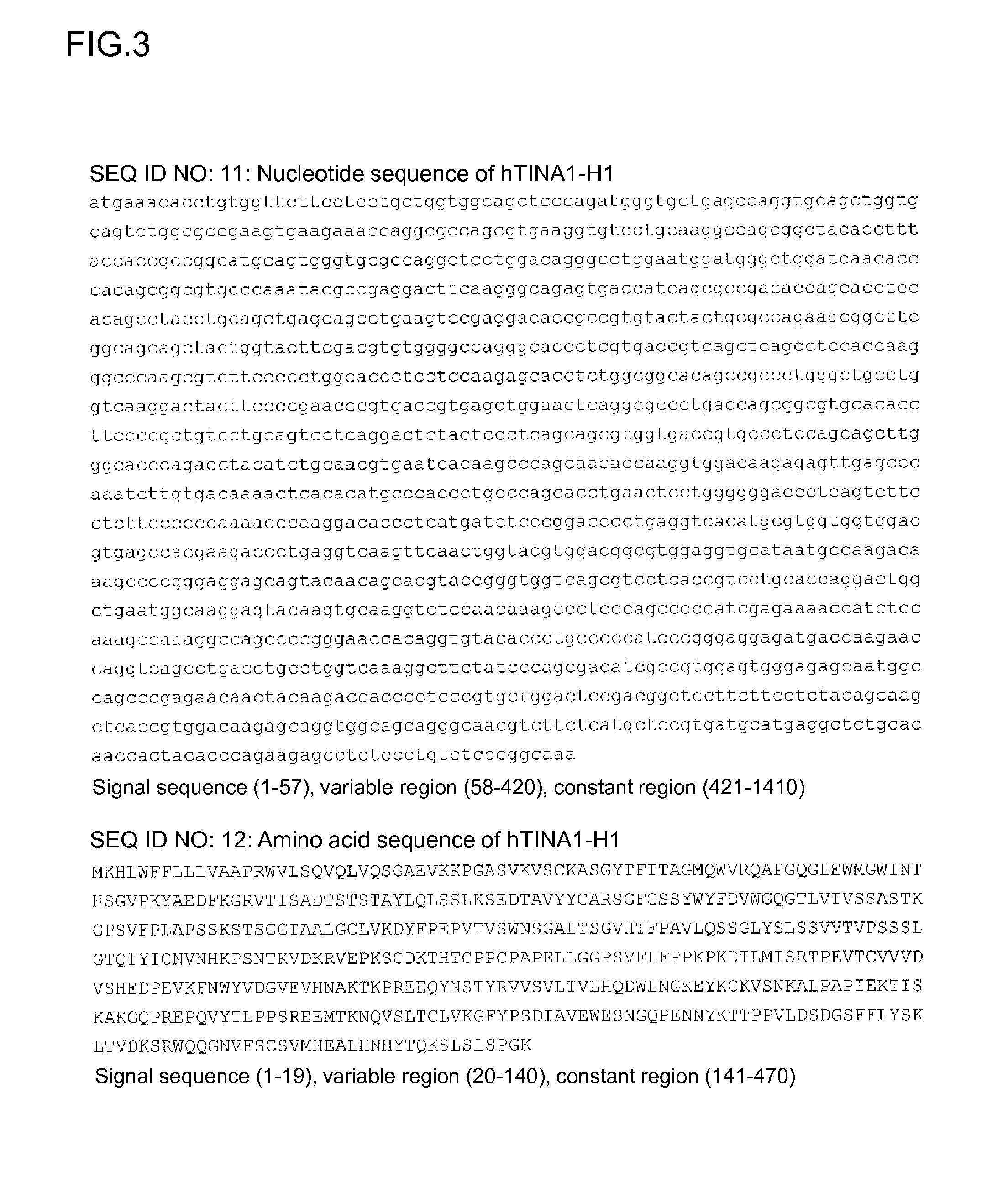Anti-trop2 antibody-drug conjugate
- Summary
- Abstract
- Description
- Claims
- Application Information
AI Technical Summary
Benefits of technology
Problems solved by technology
Method used
Image
Examples
example 1
Immunization of Mouse and Obtainment of Hybridoma
1-1) Preparation of Cell to be Used in Mouse Immunization
[0391]5×106 NCI-H322 cells (human non-small cell lung cancer cell line, ATCC CRL-5806; ATCC: American Type Culture Collection) were cultured in an RPMI-1640 (Roswell Park Memorial Institute-1640) medium (10 ml) for 5 days, then recovered, washed with PBS (phosphate-buffered saline) twice, and resuspended in PBS (500 μl).
1-2) Immunization of Mouse
[0392]For the first immunization, each BALB / c mouse (6 weeks old) was intraperitoneally immunized with NCI-H322 cells (1×107 cells). For the second to fifth immunizations, the mouse was intraperitoneally immunized with 1×106 NCI-H322 cells at 1-week intervals. For the sixth (final) immunization, the mouse was immunized through the tail vein and intraperitoneally with the NCI-H322 cells at 1×106 cells / 200 μl PBS for each route. Spleen cells were excised 3 days after the final immunization.
example 2
Purification of Antibody from Hybridoma
[0397]Pristane (2,6,10,14-tetramethylpentadecane; 0.5 ml) was intraperitoneally administered in advance to each 8- to 10-week old mouse or nude mouse, which was then raised for 2 weeks. Each monoclonal antibody-producing hybridoma obtained in Example 1 was intraperitoneally injected to the mouse. After 10 to 21 days, the hybridoma was allowed to cause ascitic canceration, and the ascites was then collected. The obtained ascites was centrifuged to remove solid matter. Then, antibodies were purified by salting out with 40 to 50% ammonium sulfate, a caprylic acid precipitation method, a DEAE-Sepharose column, and a protein G column, and IgG or IgM fractions were collected and used as purified monoclonal antibodies.
example 3
Identification of Antigen to which Antibody Produced by Hybridoma Binds
[0398]An antigen was identified for TINA1, an antibody produced by the hybridoma prepared in Example 2.
3-1) Immunoprecipitation of Biotin-Labeled Cell Surface Protein Using TINA1 Antibody
[0399]5×106 NCI-H322 cells were recovered and washed with PBS three times. EZ-Link Sulfo-NHS-Biotin (Pierce / Thermo Fisher Scientific, Inc.) was suspended in PBS at a concentration of 0.1 mg / ml. The NCI-H322 cells were rotated at room temperature for 30 minutes in biotin / PBS solution, then washed with 100 mM glycine / PBS solution (25 ml) twice, and then washed with PBS (25 ml) three times. The cells thus washed were resuspended in a lysis buffer (150 mM NaCl, 50 mM Tris-HCl pH 7.6, 1% NP-40+Protease inhibitor, 1 tablet / 50 ml of Complete EDTA free (Hoffmann-La Roche Ltd.); 2 ml) and treated at 4° C. for 30 minutes. Protein G Sepharose / lysis buffer (50% slurry; 30 μl) obtained by replacing a buffer of Protein G Sepharose (Protein G S...
PUM
| Property | Measurement | Unit |
|---|---|---|
| Therapeutic | aaaaa | aaaaa |
Abstract
Description
Claims
Application Information
 Login to View More
Login to View More - R&D
- Intellectual Property
- Life Sciences
- Materials
- Tech Scout
- Unparalleled Data Quality
- Higher Quality Content
- 60% Fewer Hallucinations
Browse by: Latest US Patents, China's latest patents, Technical Efficacy Thesaurus, Application Domain, Technology Topic, Popular Technical Reports.
© 2025 PatSnap. All rights reserved.Legal|Privacy policy|Modern Slavery Act Transparency Statement|Sitemap|About US| Contact US: help@patsnap.com



